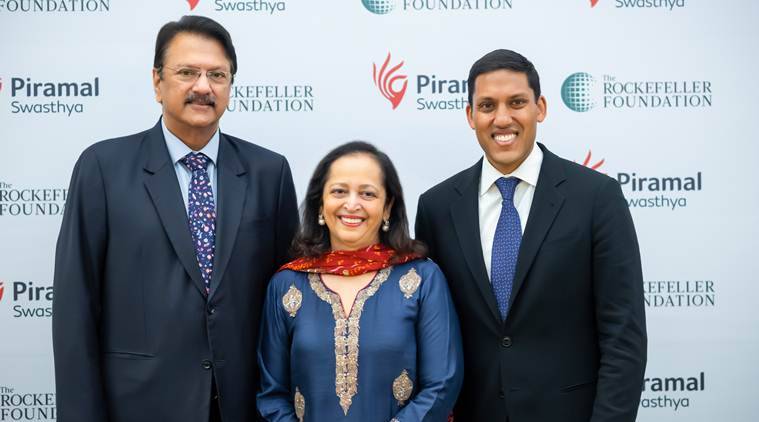Rockefeller Commits USD 105M to Making Healthy and Sustainable Foods Accessible

The Rockefeller Foundation launched its new Good Food Strategy, which will invest USD 105 million over three years to increase access to healthy and sustainable foods for 40 million underserved people around the globe.
The program will support a shift in public and private spending toward foods that are nutritious, regenerate the environment, and create equitable economic opportunity for people at every step of the food supply chain.
The new strategy builds on the Foundation’s investment in powering the food system with renewable energy, part of its historic 1 USD billion commitment to an inclusive, green recovery from the Covid-19 pandemic and as an anchor partner of the Global Energy Alliance for People and Planet.
The Good Food Strategy recognizes that the way the world produces and consumes food is failing both people and the planet.
Despite the food system’s $9 trillion global market value, two-thirds of people living in extreme poverty are agricultural workers and their families.
Unhealthy diets account for one in five deaths worldwide, and the food system generates over a quarter of all greenhouse gas emissions.
“Because of climate change, food prices were already the highest in a decade, even before Russia’s barbaric invasion of Ukraine further decimated global food supplies. Now, the world is on the precipice of a global humanitarian crisis.” said Dr. Rajiv Shah, President, The Rockefeller Foundation.
“The world must act — and act now. With this new commitment, the largest for nutrition in our history, The Rockefeller Foundation will help increase the supply of good, nourishing food and reimagine our food systems to make them more resilient for the future.”
Over the next three years, The Rockefeller Foundation’s Good Food Strategy will focus on three levers to increase access to affordable, healthy food; reduce greenhouse gas emissions in the food system, and expand economic opportunity for small- and mid-size food producers:
- Good Food Data & Science Innovations: Investments will support metrics and data systems that better inform decision-makers on the real costs and benefits of our food. This will include expanding existing investments in True Cost Accounting, which evaluates all the costs of the food system beyond what consumers pay in stores; standardizing and democratizing principles, outcomes and metrics for regenerative/agroecological agriculture including connecting a fleet of demonstration projects that show the impact potential of regenerative agriculture; harmonizing definitions of dietary quality; and launching the Periodic Table of Food Initiative, a global effort to create a public database containing the comprehensive biochemical composition and function of the most important foods from around the globe.
- Good Food Policy: The Rockefeller Foundation will advance effective, data-driven policies that improve access to good food for millions of people. A major focus will be bolstering Food is Medicine programs to combat diet-related diseases, which include produce prescription programs and the integration of food as a covered health care benefit to help patients gain access to foods that promote their health.
- Good Food Purchasing: The Good Food Strategy will support large institutions, including schools and hospitals, to use their existing food procurement budgets to buy and provide foods that benefit people and the planet. This includes piloting a program in Rwanda to test the transition from processed to whole grains in school feeding programs. It also includes supporting the development of Good Food Purchasing Program Standards to guide institutions around the world to make food choices that contribute to a healthier and more sustainable food future.
“The world is spending far too much on foods that are bad for people and bad for the planet,” said Roy Steiner, Senior Vice President, Food Initiative, The Rockefeller Foundation. “The costs multiply in long-term damage to public health, the environment, and the livelihoods of people working in food supply chains. Our Good Food Strategy aims to reverse these trends, incentivizing progress toward a food system that respects the earth and all people.”
The new strategy builds on The Rockefeller Foundation’s decades-long commitment to food systems innovation.
While historic approaches focused on increasing the quantity of food produced to avert famine, today the Foundation is working to ensure that quality foods are widely accessible and affordable, and that food policy and purchasing decisions are driven by a full understanding of the costs and benefits of what we eat. Last year, the Foundation launched the True Cost of Food Report, which evaluated all the ways food systems in the United States impact health, the environment, biodiversity, livelihoods, and much more, finding that the actual cost of food is three times its value.
To inspire bold ideas for the future of food, the foundation also recently supported the Food Systems Vision Prize, an invitation for organizations across the globe to develop visions of the regenerative, equitable and nourishing food system that they aspire to create by the year 2050.





